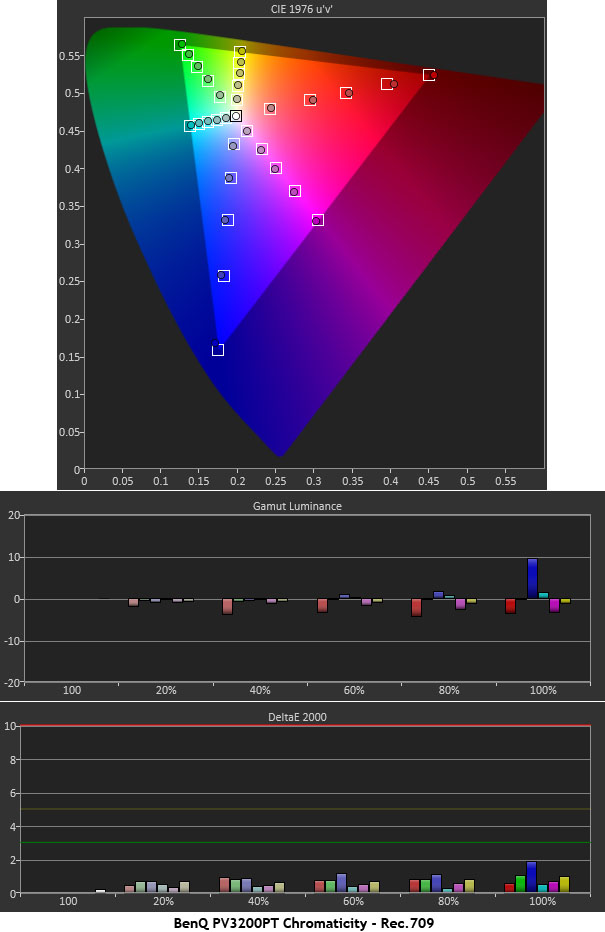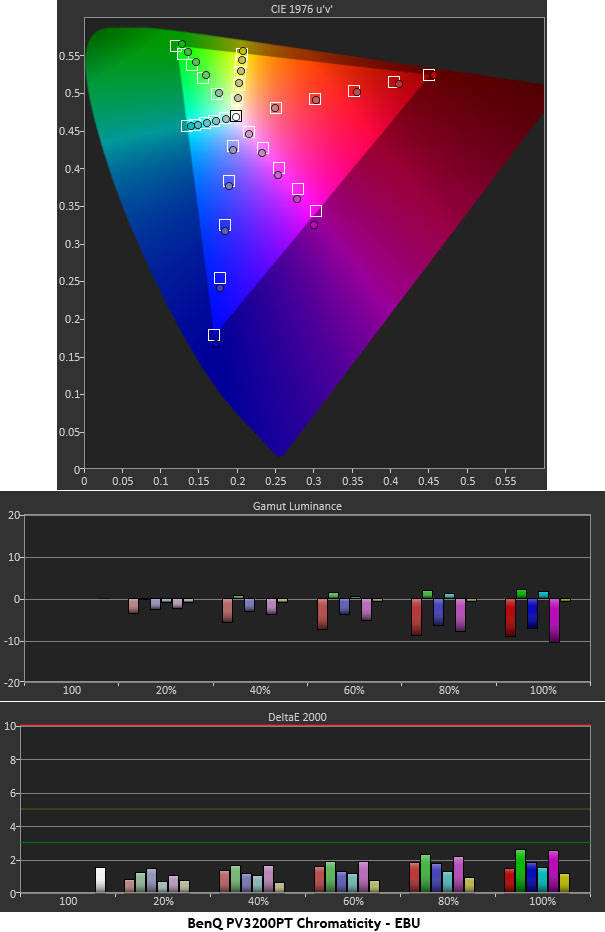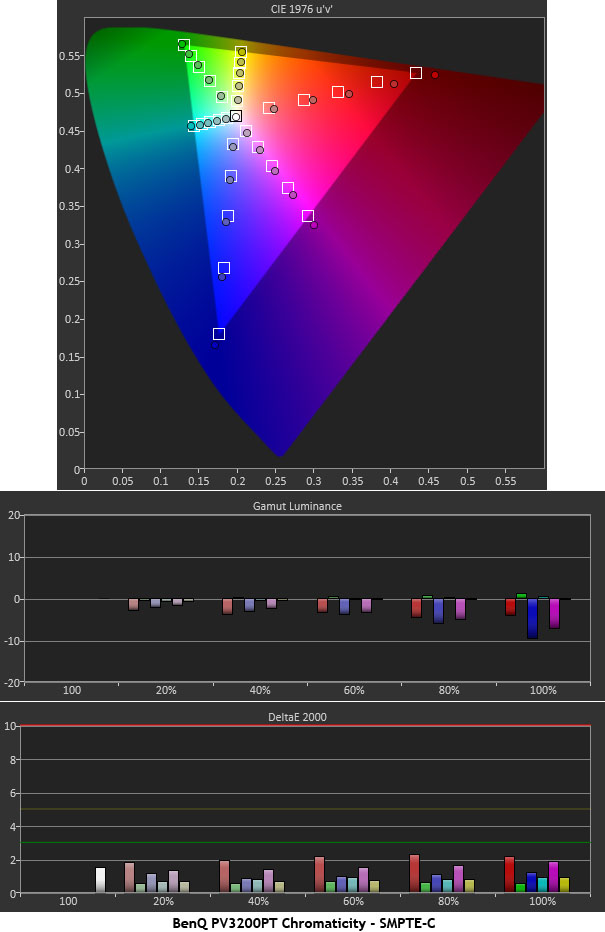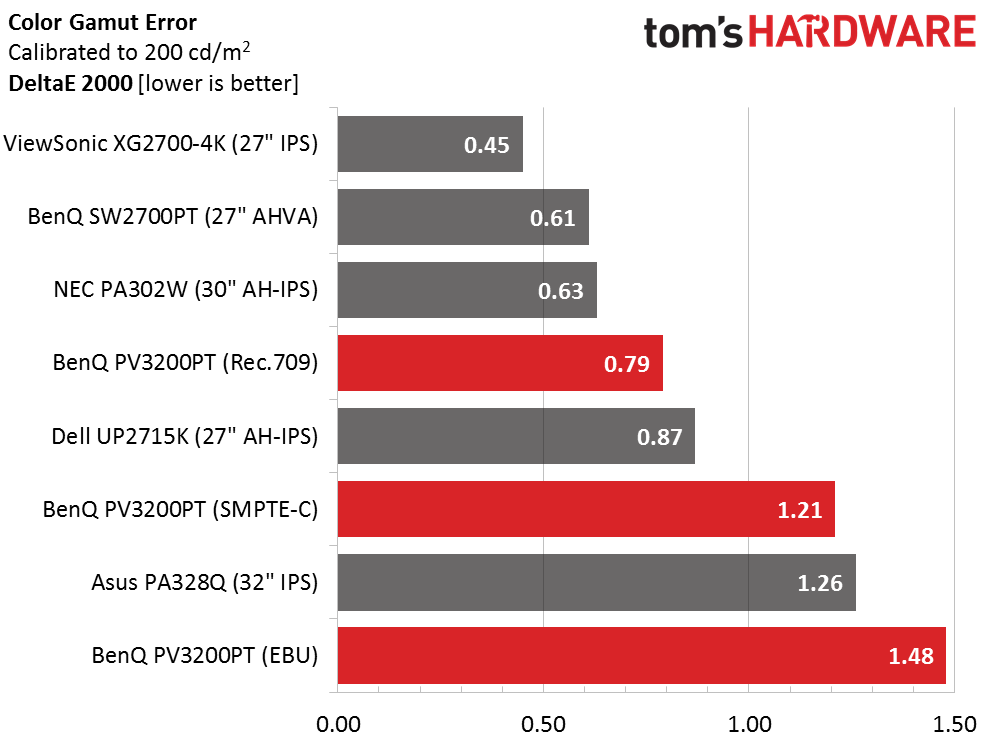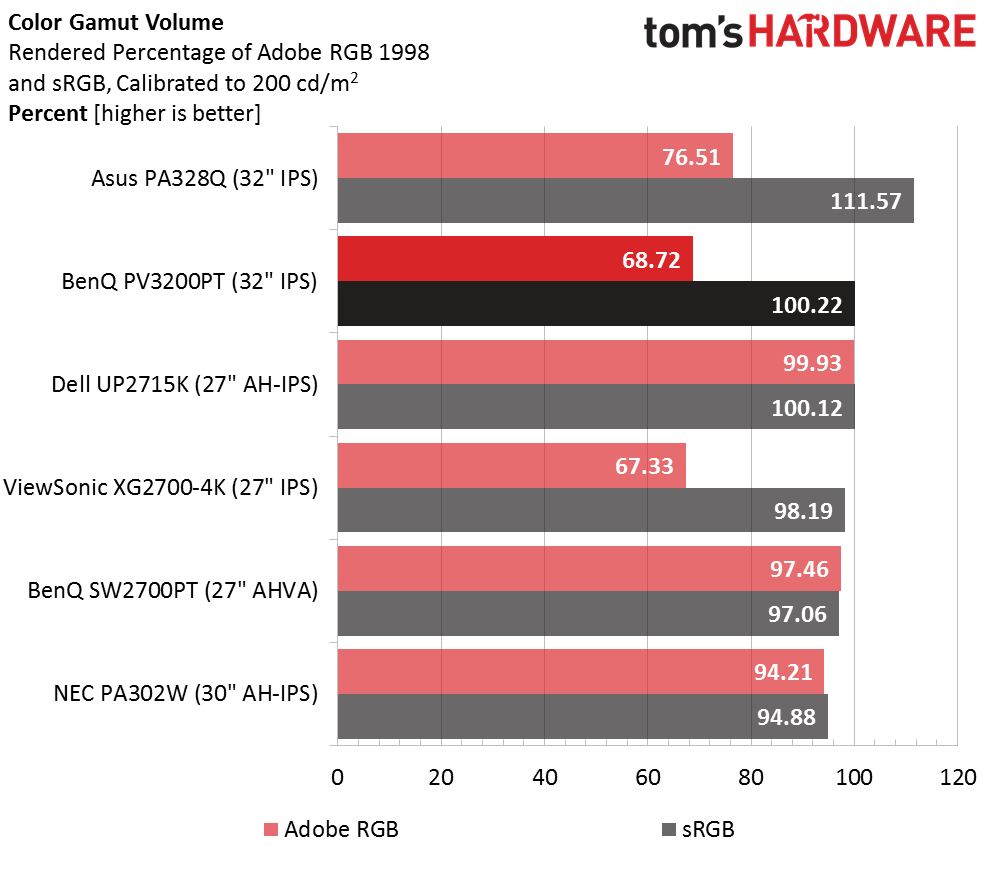BenQ PV3200PT 32-inch UHD Pro Monitor Review
Ultra HD is best enjoyed on a jumbo screen, so today we’re looking at a new BenQ professional video editing display, the 32-inch IPS-based PV3200PT.
Why you can trust Tom's Hardware
Color Gamut And Performance
For details on our color gamut testing and volume calculations, please click here.
The PV3200PT has presets for three different color gamuts used in the broadcast industry. Notably missing is DCI-P3, so this monitor would not be appropriate in some film post-production situations. If you need Rec.709 however, you won’t get much better accuracy than seen here. Every point is on-target except for a small error at 80-percent red. We can also see a slight bump in 100-percent blue luminance. Neither result in a visible problem with all DeltaE values under two.
EBU, also known as PAL/SECAM, has a slight difference in the green primary only. The PV3200PT doesn’t quite match the hue there but again, it’s an invisible error. Only the i1Pro can see the difference. Magenta is also a little off, so users might want to create an EBU gamut using the color management system and one of the custom modes. Adjusting those two colors’ hues would bring them on-target.
SMPTE-C is the colorspace from standard-def content and probably not that common these days. Its main difference is a lower red saturation which the PV3200PT hasn’t matched. Overall error values are low but we’d create a custom calibration for this gamut as well. Decreasing the red saturation would take care of the error.
Now we return to the comparison group.
Here are the average error results for all three gamuts. Rec.709 is exemplary with SMPT-C and EBU not too far behind. For ultimate precision, a calibration will be necessary but in most cases, the monitor is just fine without adjustment.
Gamut Volume: Adobe RGB 1998 And sRGB
Since the PV3200PT is aimed more at the broadcast industry, gamut volume becomes less important. It does however hit 100 percent of the sRGB colorspace almost exactly. If it were used as a proofing display, an ICC profile would not be an absolute necessity.
Get Tom's Hardware's best news and in-depth reviews, straight to your inbox.
Current page: Color Gamut And Performance
Prev Page Grayscale Tracking And Gamma Response Next Page Viewing Angles, Uniformity, Response And Lag
Christian Eberle is a Contributing Editor for Tom's Hardware US. He's a veteran reviewer of A/V equipment, specializing in monitors. Christian began his obsession with tech when he built his first PC in 1991, a 286 running DOS 3.0 at a blazing 12MHz. In 2006, he undertook training from the Imaging Science Foundation in video calibration and testing and thus started a passion for precise imaging that persists to this day. He is also a professional musician with a degree from the New England Conservatory as a classical bassoonist which he used to good effect as a performer with the West Point Army Band from 1987 to 2013. He enjoys watching movies and listening to high-end audio in his custom-built home theater and can be seen riding trails near his home on a race-ready ICE VTX recumbent trike. Christian enjoys the endless summer in Florida where he lives with his wife and Chihuahua and plays with orchestras around the state.
